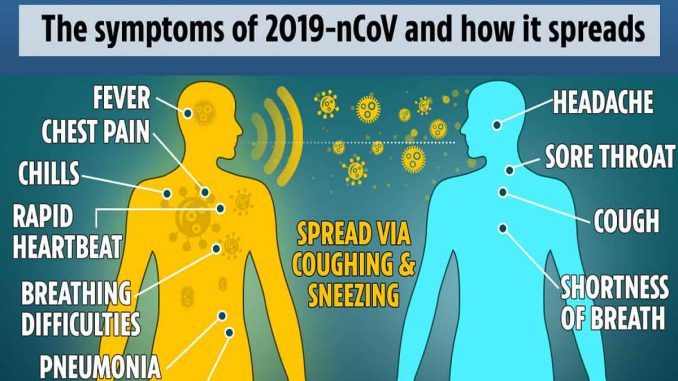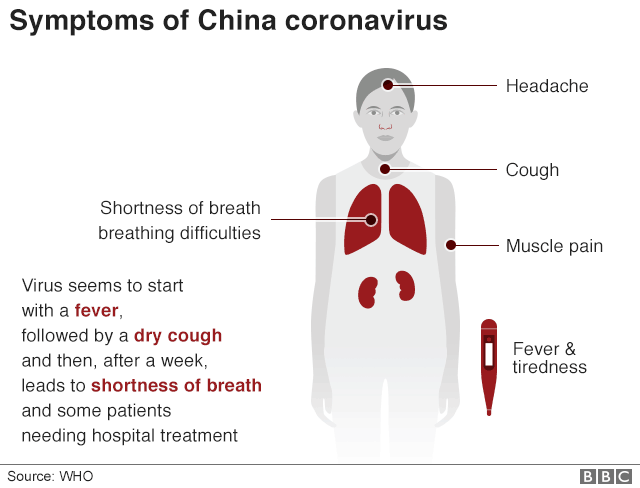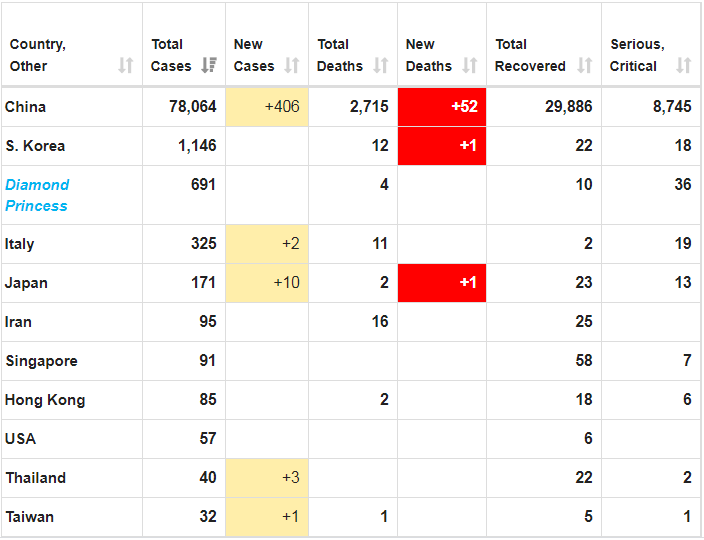
Covid 19 – a virus causing serious pneumonia originating in China has spread to many other countries, including the United Kingdom.
According to data from the Worldometers on February 26, 2020, there are nearly 81,133 infections and 2,765 deaths in the World.
Symptoms Corona Virus (Covid-19)
Usually the illness begins with a fever, followed by a dry cough.
After a week, the disease can lead to shortness of breath and some patients need hospital treatment. Notably, the Coronavirus rarely causes a runny nose or sneezing.
According to the World Health Organization (WHO), the incubation period – the period between being infected with the virus and having obvious symptoms – can last up to 14 days.
But some other researchers suggest that the incubation period can be as long as 24 days.
At the same time, Chinese scientists say some people may be infected with the virus before the symptoms of the disease appear.

Based on data from 17,000 patients infected with corona virus, WHO said:
- 82% develop mild symptoms
- 15% develop severe symptoms
- 3% is seriously ill
The mortality rate for this disease named Covid-19 was recorded quite low (from 1% to 2%). However, these figures are not reliable.
Thousands of people are being treated but at risk of death. Therefore, the death rate for corona virus may be higher.
However, we do not know how many cases of minor infections have not been reported. Therefore, the mortality rate for this corona virus may also be lower.
To compare this figure, one needs to put in the general picture: about one billion people get the flu each year, of which between 290,000 and 650,000 die. This is to note, the severity of the flu changes every year.
At present, treatment is based on the things that keep the patient’s body functioning normally, including breathing support, until the patient’s immune system is able to fight off the virus on its own.
However, vaccine development is still in progress, with the hope of successful human trials before the end of this year.
Hospitals are also testing antiviral drugs to measure their impact.

WHO recommends:
- Washing your hands often with soap or hand gel can kill viruses.
- Cover your mouth and nose when coughing or sneezing – ideally using a tissue – and then wash your hands to prevent the spread of the virus.
- Avoid touching your eyes, nose and mouth – if your hands are infected with the virus it can cause the virus to enter your body.
- Do not come in close contact with people who have symptoms of coughing, sneezing or fever. They can transfer unvariated water droplets into the air. Ideally, keep a distance of about 1 meter.
Every day, thousands of new cases are reported.
However, analysts believe that the scale may actually be 10 times larger than the official figure.
The number of virus infections is expected to double from five to seven days.
The WHO says that while an outbreak is considered a global emergency, it can be prevented.
But some experts, including the former director of the US Centers for Disease Control, say it could become a pandemic – a global epidemic.
Colds and flu tend to spread the fastest in the winter, hopefully changing seasons can help stop the outbreak.
Leaving school can also help slow the spread of disease.
However, another strain of corona virus – the Middle East Respiratory Syndrome (MERS) – raged during the summer in Saudi Arabia. Therefore, there is no guarantee that warmer weather will prevent an outbreak.
This virus is not really “new” – it is only new to the human body, being spread from species to species.
The first cases are thought to be related to the China-China Seafood Wholesale Market in Wuhan.
In China, people often come in close contact with animals carrying the virus. Not to mention, with the dense population like China, this disease is even more easily spread.
Severe acute respiratory syndrome (Sars), also caused by a corona virus, has been identified in bats. Then infect civets and then transmitted to humans.
The Sar outbreak, which began in China in 2002, killed 774 of the 8,098 people infected.
The current virus – one of seven corona viruses – does not seem to have mutated so far. Scientists are still following closely, even though the corona virus appears to be stable.
